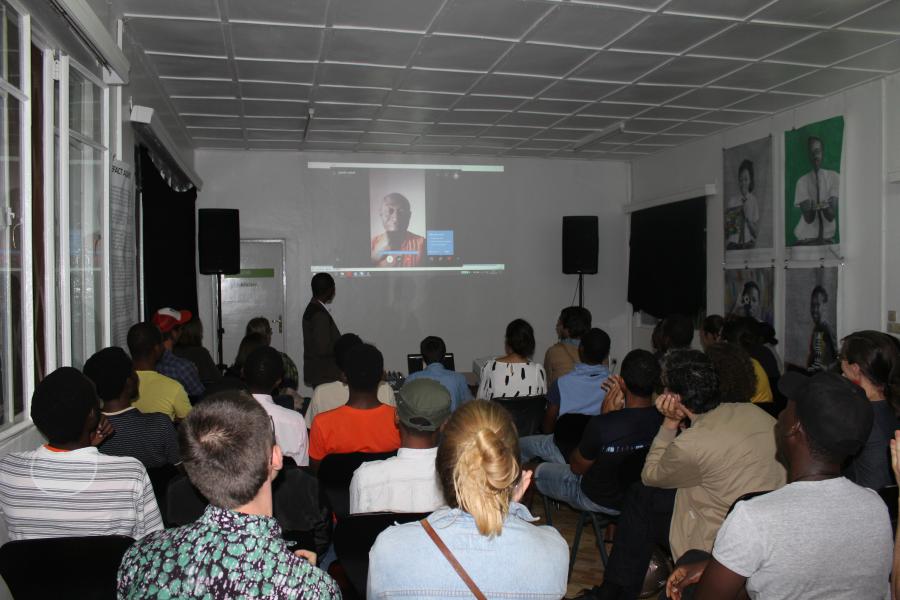PRESS RELEASE: A Migrant’s Six-Year Journey: “When Paul Came Over the Sea”
23 July 2019
- Two public screenings of a film documenting a migrant's six-year-long journey - followed by a live Q&A with the migrant himself - spark fruitful dialogue.
KIGALI, 23 JUL 2019 - Friedrich-Ebert Stiftung Rwanda in cooperation with Goethe Institut and the University of Rwanda, organized two public screenings and debates (14/5) of the documentary, “When Paul Came Over the Sea”, demonstrating a migrant’s six-year-long journey.
In the documentary, Paul, the main character, starts his adventure in Cameroon and makes his way across the Sahara to the Moroccan Coast, living in a forest waiting for the right moment to cross the Mediterranean Sea. This is where he meets Jakob Preuss, a German filmmaker. Soon afterwards, Paul manages to cross over to Spain on an inflatable rubber boat. He survives – but half of his companions die on this tragic 50-hour odyssey. Once in Spain, instead of getting psychological help, he is sent to an immigration detention centre on a prison island.

It is only upon his release that Jakob and Paul meet again, at a Red Cross shelter in Granada, Spain. Because of the economic crisis in southern Europe, Paul decides to continue to Germany, the former colonizing power of Cameroon. Paul has applied for asylum in Germany; however, there are limited chances that he will get it.
The film was screened at the Goethe-Institut, the German cultural centre in Kigali, to more than 60 people. After the screening, the audience were able to ask questions to Paul via Skype. Paul now lives with the parents of the filmmaker at their home in Spain.
Alice Karara, a Project Officer with IOM Rwanda, defined IOM’s mandate and explained the meaning and importance of migration management for the well-being of all migrants and their families. She strongly advised potential labour migrants, including the youth in Rwanda, against irregular migration as it puts them at risk of being trafficked and exploited, saying:
“The youth needs to consult immigration authorities on requirements of safe labour mobility to avoid abuse.”
Jakob Preuss, the director of the film, also rooted for the positivity of migration, saying:
“It is in the interest of a country to allow migration in both directions,” as it is beneficial to migrants and countries.
He added:
“To the places where the migrants go, societies become diverse. Look at the example of the USA: its diverse society has registered great innovation and economic success. On returning, people bring new knowledge; some send remittances back home.”
A similar event was held at the University of Rwanda in Huye for more than 100 University students on 15 May 2019. It brought together panelists from the University of Rwanda and IOM Rwanda as well as the producer of the film.







